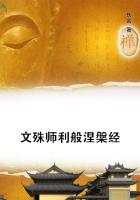But to lighten his fall they fastened live birds and feathers to him, and a flotilla of small boats waited below to catch him and convey him beyond the boundary. Probably these humane precautions were a mitigation of an earlier custom of flinging the scapegoat into the sea to drown. The Leucadian ceremony took place at the time of a sacrifice to Apollo, who had a temple or sanctuary on the spot. Elsewhere it was customary to cast a young man every year into the sea, with the prayer, Be thou our offscouring. This ceremony was supposed to rid the people of the evils by which they were beset, or according to a somewhat different interpretation it redeemed them by paying the debt they owed to the sea-god. As practised by the Greeks of Asia Minor in the sixth century before our era, the custom of the scapegoat was as follows. When a city suffered from plague, famine, or other public calamity, an ugly or deformed person was chosen to take upon himself all the evils which afflicted the community. He was brought to a suitable place, where dried figs, a barley loaf, and cheese were put into his hand. These he ate. Then he was beaten seven times upon his genital organs with squills and branches of the wild fig and other wild trees, while the flutes played a particular tune. Afterwards he was burned on a pyre built of the wood of forest trees; and his ashes were cast into the sea. A similar custom appears to have been annually celebrated by the Asiatic Greeks at the harvest festival of the Thargelia.
In the ritual just described the scourging of the victim with squills, branches of the wild fig, and so forth, cannot have been intended to aggravate his sufferings, otherwise any stick would have been good enough to beat him with. The true meaning of this part of the ceremony has been explained by W.
Mannhardt. He points out that the ancients attributed to squills a magical power of averting evil influences, and that accordingly they hung them up at the doors of their houses and made use of them in purificatory rites. Hence the Arcadian custom of whipping the image of Pan with squills at a festival, or whenever the hunters returned empty-handed, must have been meant, not to punish the god, but to purify him from the harmful influences which were impeding him in the exercise of his divine functions as a god who should supply the hunter with game. Similarly the object of beating the human scapegoat on the genital organs with squills and so on, must have been to release his reproductive energies from any restraint or spell under which they might be laid by demoniacal or other malignant agency; and as the Thargelia at which he was annually sacrificed was an early harvest festival celebrated in May, we must recognise in him a representative of the creative and fertilising god of vegetation. The representative of the god was annually slain for the purpose I have indicated, that of maintaining the divine life in perpetual vigour, untainted by the weakness of age; and before he was put to death it was not unnatural to stimulate his reproductive powers in order that these might be transmitted in full activity to his successor, the new god or new embodiment of the old god, who was doubtless supposed immediately to take the place of the one slain. Similar reasoning would lead to a similar treatment of the scapegoat on special occasions, such as drought or famine. If the crops did not answer to the expectation of the husbandman, this would be attributed to some failure in the generative powers of the god whose function it was to produce the fruits of the earth. It might be thought that he was under a spell or was growing old and feeble. Accordingly he was slain in the person of his representative, with all the ceremonies already described, in order that, born young again, he might infuse his own youthful vigour into the stagnant energies of nature. On the same principle we can understand why Mamurius Veturius was beaten with rods, why the slave at the Chaeronean ceremony was beaten with the agnus castus (a tree to which magical properties were ascribed), why the effigy of Death in some parts of Europe is assailed with sticks and stones, and why at Babylon the criminal who played the god scourged before he was crucified. The purpose of the scourging was not to intensify the agony of the divine sufferer, but on the contrary to dispel any malignant influences by which at the supreme moment he might conceivably be beset.
Thus far I have assumed that the human victims at the Thargelia represented the spirits of vegetation in general, but it has been well remarked by Mr. W. R. Paton that these poor wretches seem to have masqueraded as the spirits of fig-trees in particular. He points out that the process of caprification, as it is called, that is, the artificial fertilisation of the cultivated fig-trees by hanging strings of wild figs among the boughs, takes place in Greece and Asia Minor in June about a month after the date of the Thargelia, and he suggests that the hanging of the black and white figs round the necks of the two human victims, one of whom represented the men and the other the women, may have been a direct imitation of the process of caprification designed, on the principle of imitative magic, to assist the fertilisation of the fig-trees. And since caprification is in fact a marriage of the male fig-tree with the female fig-tree, Mr. Paton further supposes that the loves of the trees may, on the same principle of imitative magic, have been simulated by a mock or even a real marriage between the two human victims, one of whom appears sometimes to have been a woman. On this view the practice of beating the human victims on their genitals with branches of wild fig-trees and with squills was a charm intended to stimulate the generative powers of the man and woman who for the time being personated the male and the female fig-trees respectively, and who by their union in marriage, whether real or pretended, were believed to help the trees to bear fruit.















